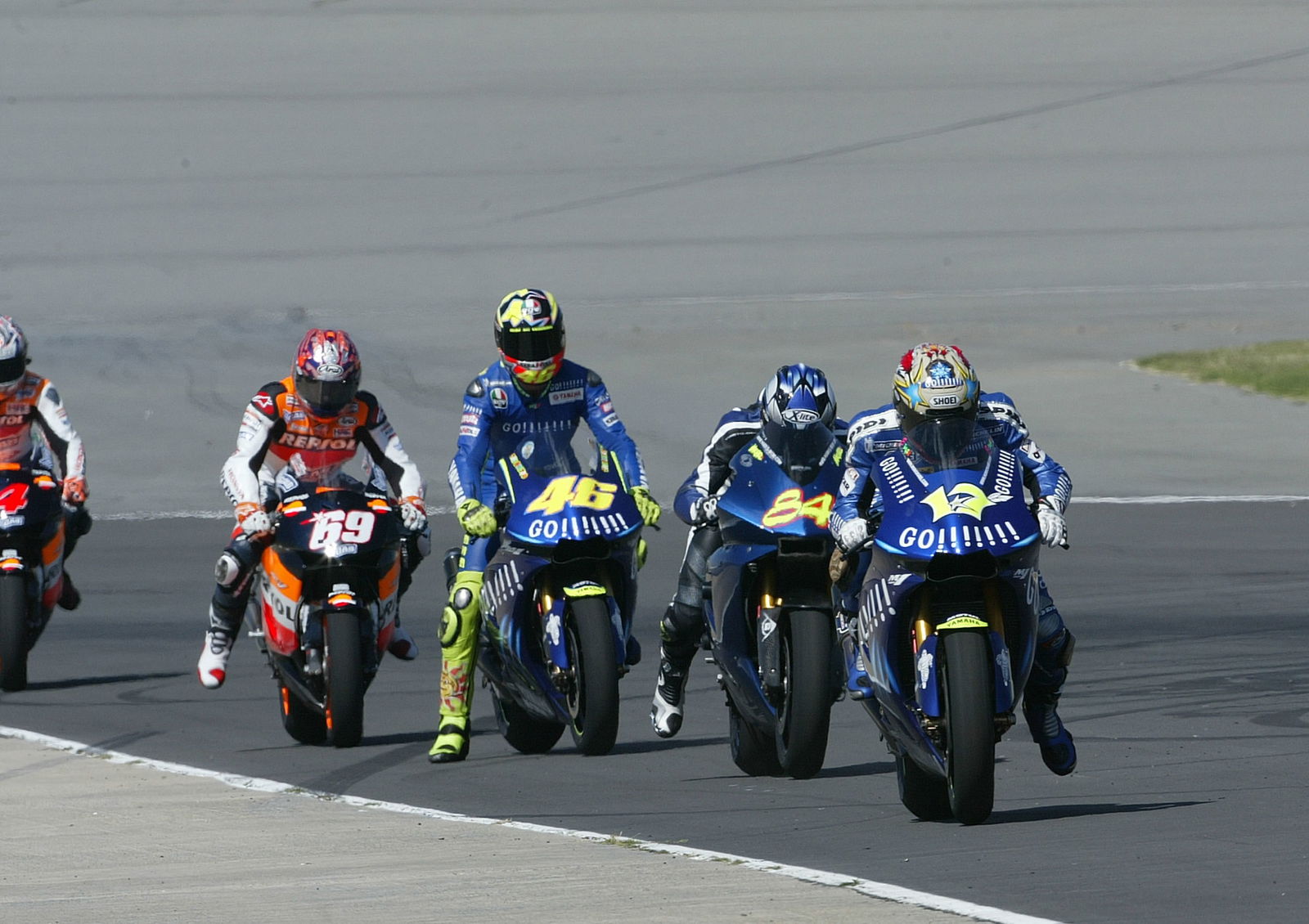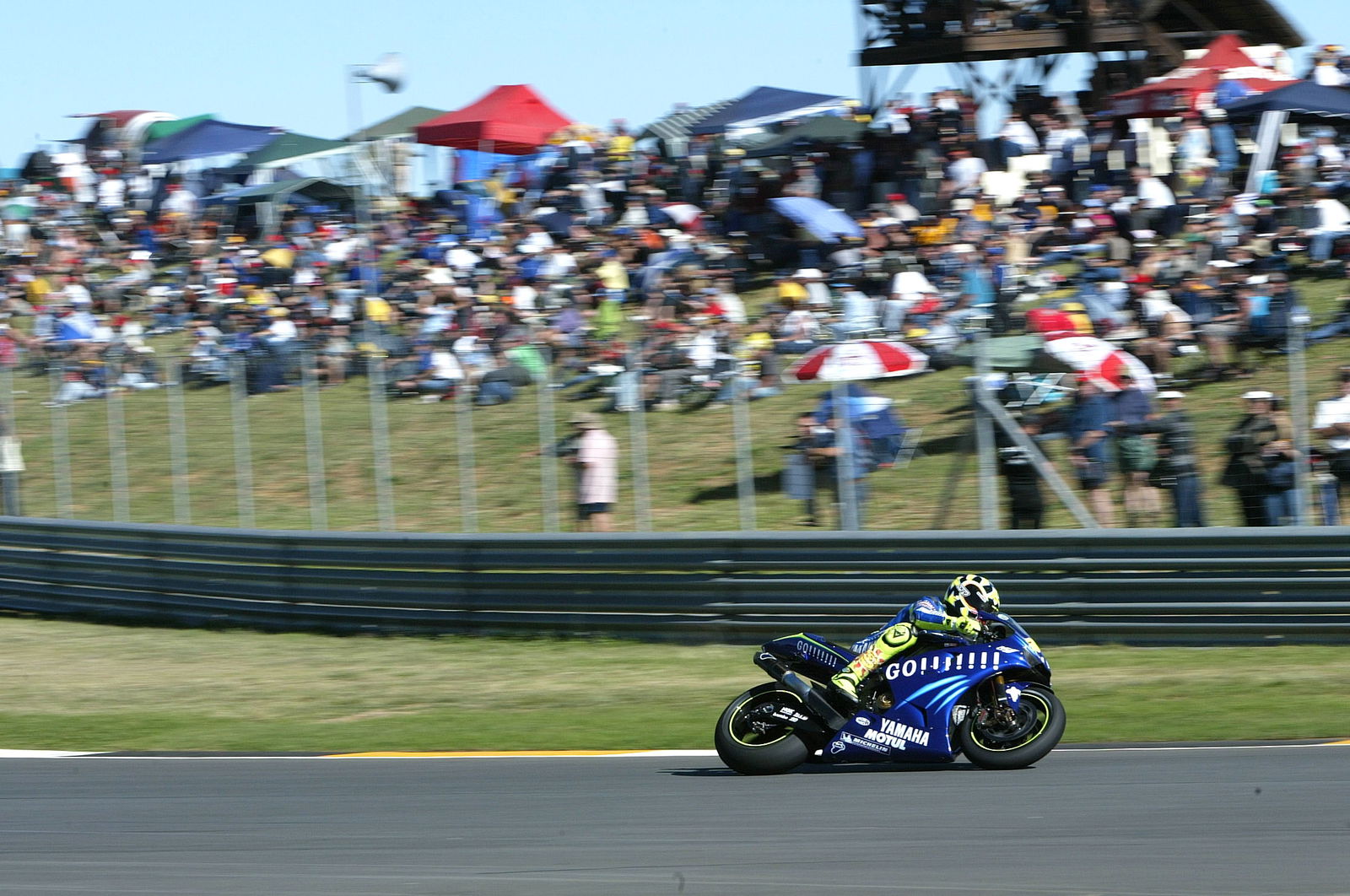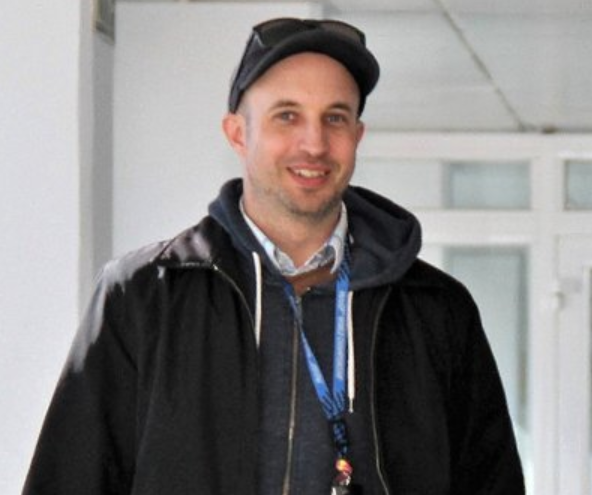Rossi proves rider greater than machine.
by Peter McLaren
Valentino Rossi's superb victory at Welkom may mark the start of a new era in MotoGP, where the recent emphasis upon exotic technology is replaced by a realisation that, however great the machine, it's the rider that's most important.
Since the introduction of the MotoGP class in 2002, thinking has steadily evolved to the conclusion, rightly or wrongly, that to win regularly you need superior machinery - i.e. a Honda RC211V... any Honda RC211V.

by Peter McLaren
Valentino Rossi's superb victory at Welkom may mark the start of a new era in MotoGP, where the recent emphasis upon exotic technology is replaced by a realisation that, however great the machine, it's the rider that's most important.
Since the introduction of the MotoGP class in 2002, thinking has steadily evolved to the conclusion, rightly or wrongly, that to win regularly you need superior machinery - i.e. a Honda RC211V... any Honda RC211V.
The domination of the Rossi/Honda combination, plus the performance of Sete Gibernau (reasonable on a Suzuki, heroic on a Honda), Kenny Roberts Jr (beat Rossi on a 500cc Suzuki, then struggled with the troubled GSV-R) and Colin Edwards (rated as one of the best, but never a threat at Aprilia) apparently proving that theory.
It all looked as though MotoGP would become like Formula One, where designers rule and engineers arguably don't need to understand motor racing as much - if its an improvement on paper then its likely to be an improvement on the racetrack, simply because the significance of human influence (the driver) is so much smaller.
But if machinery really did rule MotoGP, Rossi would have finished the Africa's Grand Prix at least near his fellow Yamahas.
Instead the Italian was over 36-seconds clear of the next best M1, of Norick Abe in ninth, making him over a second a lap faster. If Rossi hadn't been on a Yamaha at Welkom, the 2004 YZR-M1 would probably be condemned as off the pace.
It seems that with four-strokes now entering their third season, and with no major rule changes since their introduction (change always favours bigger teams at first), that the relative importance of the machine element is in decline and the human factor is once again making the difference.
This human factor is where motorcycle racing differs from F1 - an improvement on paper, or in a computer simulation, won't translate across unless a motorcycle engineer understands what the rider feels, and actually needs to go faster. A change might not make the 'numbers' look better, but if the rider has more confidence or 'feel' he'll go quicker.
Look also at the number of former riders who have successfully entered team management. Former racers are more successful in MotoGP partly because it's essential to understand what racing a motorcycle is actually like, whereas even Jackie Stewart and Alain Prost had little opportunity to influence the performance of their respective F1 teams.
It's this requirement for reading a racer's mind that makes Jerry Burgess and co. so valuable to Rossi; they bridge the gap between technology and the Italian to keep the two working in harmony. Rossi is never left unnecessarily chasing high-tech electronics, as some riders have been in recent years, but concentrates on winning with a user friendly machine set-up to handle human unpredictability.
"The bike was quite good at full distance, although the tyres did start to move a bit after seven or eight laps, but after that they stayed constant and the bike stayed with me," said Rossi. "Today's race showed that the level of this sport has greatly increased since last year but winning a race like this is not a miracle, it's down to all the hard work we've put in."
"Racing needs a good rider, bike and organisation; otherwise you cannot have a win," added Masao Furusawa, general manager of Yamaha technology development division, after watching Rossi's victory. "An exceptional rider has come to Yamaha and all I can say is thank you to him and his crew. Valentino really is the genius behind the bike. We've only been testing with him for three months this winter and we've achieved the first goal, now we have another fifteen goals!"
Yamaha as an organisation may have improved since 2003, but the Welkom results for Abe and Carlos Checa - the only two riders who raced M1s this year and last - indicate that without the Rossi/Burgess combination they'd have achieved little:
2003/2004 Yamaha race results - Welkom
Norick Abe: 44m 31.268s (8th) / 44m 26.861s (9th) (-4.407secs)Carlos Checa: 44m 32.543s (9th) / 44m 29.502s (10th) (-3.041secs)
Rider: 2003 race time (position) / 2004 race time (position) (difference)
For the record, Rossi and Biaggi finished the Africa's Grand Prix 20.543secs and 25.043secs faster this year as they pushed each other to the limit. Roll on Jerez...


